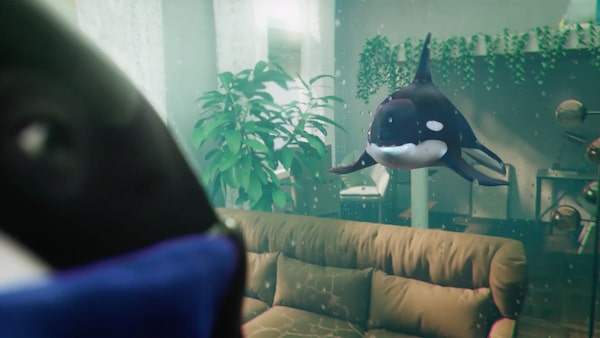A scene from In the Rearview, by Polish director Maciek Hamela. The movie, which features people who Hamela helps take to areas in Ukraine that are not under shelling, will open the Toronto Ukrainian Film Festival.Supplied
Though Ukraine’s war with Russia continues to make news, headlines can only say so much. The Toronto Ukrainian Film Festival, gearing up for its second year, aims to paint a richer picture of contemporary life in the battle-scarred country.
“Through these film stories, you will discover Ukrainians with their sense of humor, their sense of the world, love, suffering and desire to live,” says Roman Lysiak, the founder of the festival, which will run at Toronto’s Royal Cinema from April 4 to 7.
The organizers have selected films that have already garnered critical and industry recognition. The festival will open with In the Rearview, a documentary that was submitted to this year’s Oscars. Polish director Maciek Hamela purchased a van to evacuate people seeking refuge from shelling. He placed a camera in the vehicle and recorded the passengers as they shared stories and talked about their new reality. (Appearing in the doc was not a condition for the ride.) After the screening, the film’s co-producer, Anna Palenchuk, will hold a Q&A session.
In total, TUFF’s program comprises nine feature films. These include Mariupolis, whose director, Mantas Kvedaravicius, was killed in 2022 while attempting to evacuate civilians from Mariupol; the detective story La Palisiada, directed by Philip Sotnychenko, which won best feature film at the Torino Film Festival; Klondike, directed by Maryna Er Gorbach, which won awards at the 2022 Sundance Film Festival and the 2022 Berlin International Film Festival; and We Will Not Fade Away, directed by Alisa Kovalenko, which tells the story of five teenagers living in Donbass and won best film at the 2023 Docudays UA International Documentary Human Rights Film Festival.
A Saturday morning screening of 10 animated short films is suitable for children. Presented by the Linoleum Contemporary Animation and Media Art Festival in Kyiv, the collection is described as “quirky, funny and contemplative.”

A scene from an animated short by Nikita Ratnikov to be screened at the festival. A morning screening of 10 animated short films will be suitable for younger audiences.Supplied
Last year, the festival sold 1,500 tickets for seven films; this year, it’s hoping for a larger audience. All of the movies deserve the attention of Canadian audiences, Lysiak says: “They are all interesting and different.”
He added: “[It is] very important for us to keep Ukraine in the minds of Canadians. We want to provide a variety of films, to submit different genres, styles – something that shows the multidimensionality of Ukrainian cinema.”
TUFF also aims to become a platform for establishing ties between the Ukrainian and Canadian film industries, with organizers inviting filmmakers from both countries for networking opportunities.
All proceeds from TUFF 2024 will go to Second Front Ukraine Foundation and the humanitarian work of the Canada-Ukraine Foundation.
Editor’s note: A previous version of this article incorrectly stated there are eight feature films in the TUFF program. There are nine. This version has been updated.